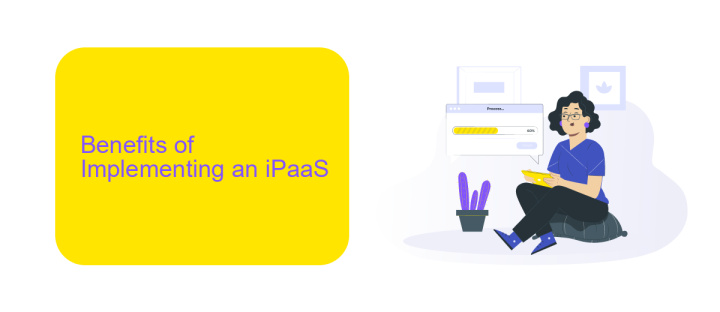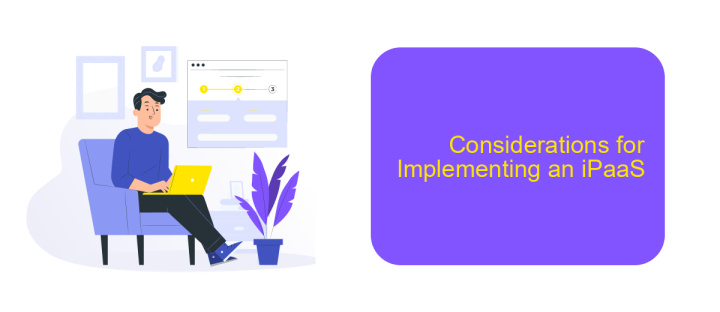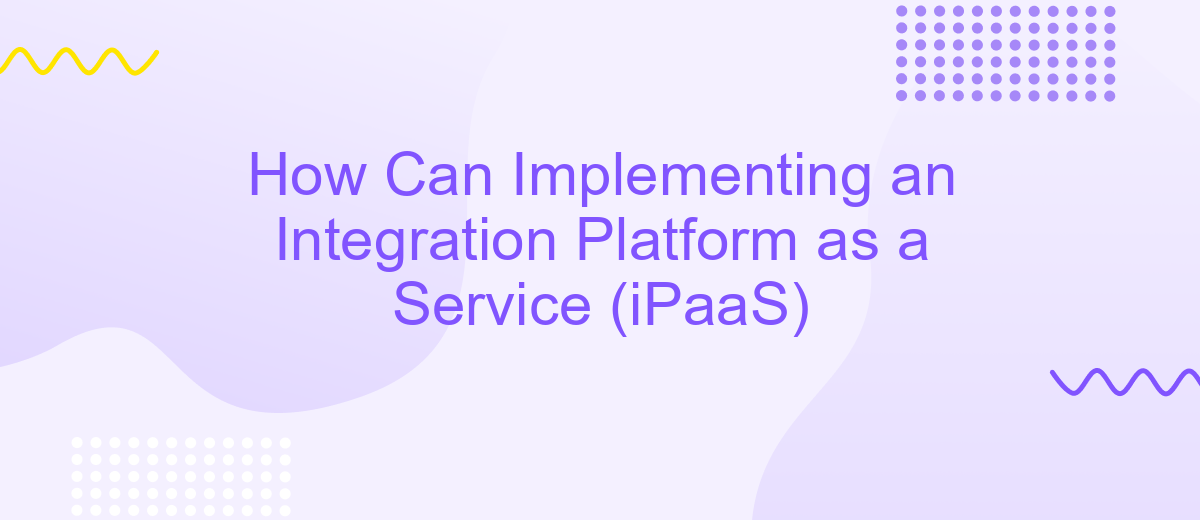How Can Implementing an Integration Platform as a Service (iPaaS)
In today's rapidly evolving digital landscape, businesses are increasingly turning to Integration Platform as a Service (iPaaS) to streamline their operations and enhance connectivity. iPaaS solutions offer a unified platform for integrating disparate systems, applications, and data sources, enabling seamless communication and improved efficiency. This article explores the benefits and strategies for successfully implementing iPaaS in your organization.
Introduction
In today's rapidly evolving technological landscape, businesses are increasingly turning to Integration Platform as a Service (iPaaS) solutions to streamline their operations and enhance connectivity. iPaaS provides a cloud-based approach to integrate various applications and data sources, enabling seamless communication and data flow across different systems. This not only reduces the complexity of managing multiple integrations but also accelerates the deployment of new services and applications.
- Efficiently connect disparate systems and applications
- Automate workflows and data synchronization
- Enhance scalability and flexibility
- Reduce integration costs and time
- Improve data accuracy and consistency
One notable example of an iPaaS solution is ApiX-Drive, which offers a user-friendly platform for setting up integrations without the need for extensive coding knowledge. By leveraging ApiX-Drive, businesses can easily automate and manage their data flows, ensuring that all systems work in harmony. This empowers organizations to focus on their core activities while enjoying the benefits of a highly integrated and efficient operational environment.
Benefits of Implementing an iPaaS

Implementing an Integration Platform as a Service (iPaaS) offers numerous benefits for businesses looking to streamline their operations. One key advantage is the ability to connect disparate systems and applications seamlessly, allowing for real-time data flow and improved efficiency. By using iPaaS solutions like ApiX-Drive, companies can automate workflows and reduce manual data entry, minimizing errors and saving valuable time. This leads to enhanced productivity and allows teams to focus on more strategic tasks.
Another significant benefit of iPaaS is its scalability and flexibility. As businesses grow and evolve, their integration needs change. An iPaaS solution can easily adapt to these changes without requiring extensive reconfiguration or additional resources. With platforms like ApiX-Drive, organizations can quickly add new integrations and modify existing ones to meet their evolving requirements. This scalability ensures that businesses can maintain seamless operations and continue to innovate without being hindered by technical limitations.
Challenges of Implementing an iPaaS

Implementing an Integration Platform as a Service (iPaaS) can be a complex process that presents several challenges. Organizations often face difficulties in ensuring seamless integration across diverse systems and applications.
- Data Security and Compliance: Ensuring that data transferred between systems is secure and complies with regulations can be a significant challenge.
- Scalability: As businesses grow, the iPaaS must be able to scale accordingly, which can be difficult to manage without proper planning.
- Customization: Tailoring the iPaaS to meet specific business needs often requires significant customization, which can be resource-intensive.
- Vendor Lock-in: Dependence on a single iPaaS provider can limit flexibility and increase risks associated with vendor changes.
- Integration Complexity: Integrating legacy systems with modern applications may require extensive effort and expertise.
Despite these challenges, tools like ApiX-Drive can simplify the integration process by offering user-friendly interfaces and pre-built connectors. By leveraging such services, organizations can overcome many of the hurdles associated with implementing an iPaaS, ensuring more efficient and effective integration solutions.
Considerations for Implementing an iPaaS

When considering the implementation of an Integration Platform as a Service (iPaaS), it is crucial to evaluate various factors to ensure a seamless integration process. The choice of an iPaaS solution can significantly impact your business operations, so careful planning is essential.
First, assess your specific integration needs and objectives. Determine which systems and applications need to be connected and what data needs to be exchanged. This will help in selecting an iPaaS that aligns with your business requirements. Additionally, consider the scalability of the platform to accommodate future growth.
- Compatibility with existing systems
- Ease of use and user interface
- Security and compliance features
- Cost and pricing models
- Support and customer service
For instance, ApiX-Drive offers a user-friendly interface and robust integration capabilities, making it an excellent choice for businesses looking to streamline their workflows. By leveraging such platforms, you can automate processes and improve efficiency, ultimately driving business growth.
Conclusion
Implementing an Integration Platform as a Service (iPaaS) can significantly streamline business processes by enabling seamless data flow between various applications. This not only reduces manual efforts but also minimizes errors, leading to improved operational efficiency. By leveraging iPaaS, organizations can ensure that their systems are always up-to-date and synchronized, which is crucial for maintaining data integrity and making informed decisions.
Moreover, platforms like ApiX-Drive simplify the integration process by offering user-friendly interfaces and pre-built connectors for a wide range of applications. This allows businesses to quickly set up integrations without the need for extensive technical expertise. As a result, companies can focus on their core activities while enjoying the benefits of automated workflows and enhanced productivity. In conclusion, adopting an iPaaS solution is a strategic move that can drive business growth and operational excellence.
FAQ
What is an Integration Platform as a Service (iPaaS)?
How can iPaaS benefit my business?
What types of integrations can be achieved with iPaaS?
Is iPaaS suitable for small businesses?
How secure is data when using iPaaS?
Routine tasks take a lot of time from employees? Do they burn out, do not have enough working day for the main duties and important things? Do you understand that the only way out of this situation in modern realities is automation? Try Apix-Drive for free and make sure that the online connector in 5 minutes of setting up integration will remove a significant part of the routine from your life and free up time for you and your employees.

